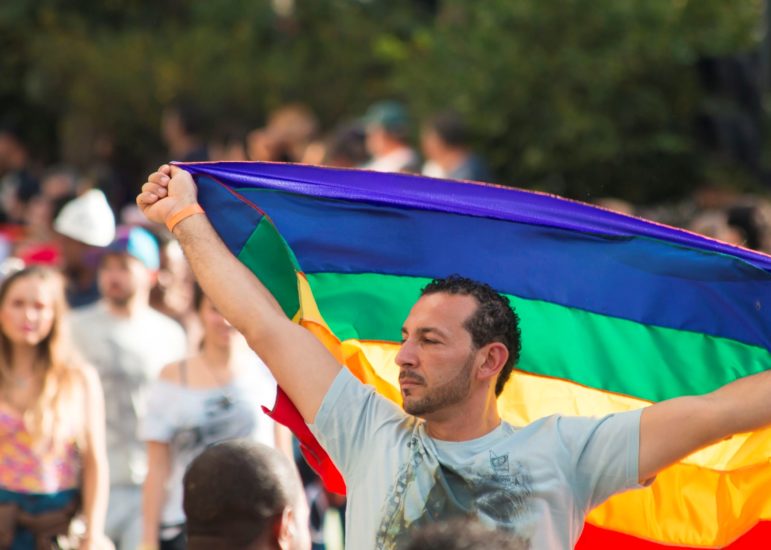
Everyone’s lives will be impacted by climate change. Full stop.
But what about the people and communities already disproportionately experiencing the effects of inequitable systems?
The research has made it clear: those who contribute the least to climate change are—and will continue—to suffer its greatest impacts. Those living in frontline and coastal communities and those with lower incomes, who both nationally and globally are more likely to be people of color, indigenous, and poorer folks, will experience an unduly high level of some of the most damaging and dramatic effects of climate change.
Climate change crosses borders, class, gender, and race. Less discussed when assessing the impact of the climate crisis, however, is the LGBTQ+ community.
LGBTQ+ folks are more vulnerable to the harmful impacts of a warming planet. They are more likely to be living on lower incomes, to experience homelessness, and have limited access to healthcare. People who identify as LGBTQ+ as well as black, indigenous, and/or as people of color will likely be hit even harder.
On a macro scale, those with more economic power—while certainly not immune—are more insulated from the impacts of climate change. Those with the financial means can more easily pay a premium for restricted supplies of food and water, pack up a vehicle and drive out of town in cases of extreme weather, or rebuild after an extreme weather event. They also probably have more access to information channels in cases of emergency.
Conversely, those living on lower incomes simply do not. They likely have fewer financial alternatives with less access to capital. They cannot easily uproot their families, leaving their homes and jobs for a new state or town. Simply put, they face increased risk under the same set of circumstances as those with more privilege.
Trans folks in particular tend to face financial challenges that stem from discrimination and intolerance. It can be challenging to find workplaces that are safe and inclusive for those who are trans. In the U.S., thirty percent of trans folks report being mistreated in their workplace; one in three trans folks report living in poverty. The unemployment rate for this part of our society is three times higher that of the general population; this rate increases for black trans folks. Unemployment puts LGBTQ+ populations at greater risk of poverty and homelessness, making them more vulnerable to the effects of climate change.
Trans folks also can face barriers and discrimination in the healthcare system: one in four transgender people report having avoided medical care in the past year out of fear of being disrespected or mistreated. This not only puts them at increased financial risk, but also increases exposure to effects of climate change, which include spread of illnesses and harmful effects from poor air quality and pollution.
Homelessness impacts many populations, particularly those with mental illness and veterans. It is also an LGBTQ+ issue, with forty percent of homeless youth identifying as LGBTQ+, many of whose families kick them out when they come out to them. In Minnesota alone, nearly 20% of homeless youth identify as LGBTQ+. Those who are without a safe place to escape the elements are more susceptible to extreme cold, heat waves, and the health and safety risks that come with living outside.
The increased impacts of climate change on LGBTQ+ folks come not simply by virtue of a particular identity, but rather by existing societal discrimination towards that identity, which is then multiplied by the complex and far-reaching effects of climate change. As we adapt to a changing planet, we must also recognize the ways in which some will be more affected by climate change than others. And as we build and invest in clean energy jobs and infrastructure, we must do so intentionally and justly—to make sure everyone is brought along in the transformation.
Fresh Energy is committed to ensuring that no one is left behind in the transition to a clean energy economy. Learn more about our work in advancing equity, access, and inclusion for all Minnesotans.
